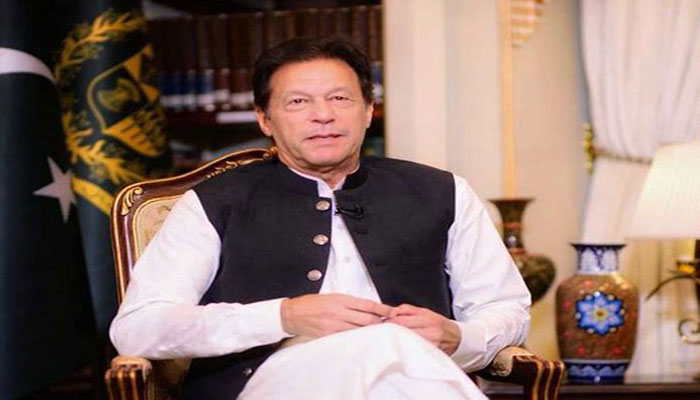Experts urge government to focus on renewable energy
Welcoming Prime Minister Imran Khan’s commitment at a UN summit not to go for new coal power projects, speakers at a webinar on Wednesday urged that renewable energy should be promoted in the country.
The Pakistan Fisherfolk Forum organised the webinar, which was attended by representatives of the Alliance for Climate Justice and Clean Energy, academia, civil society representatives and media.
Participants of the webinar hailed Premier Khan’s commitment at the Climate Ambition Summit 2020 last month to not have any more power generation based on coal in the future, but they also showed their concerns that Khan said coal would be converted into liquid and gas.
PFF chairman Muhammad Ali Shah said the government should not include hydropower plants in the category of renewables because those had severe impacts on river ecology, aquatic life and the lives and livelihoods dependent on river waters.
“The ongoing land acquisition for coal power projects has dislocated thousands of local families from their ancestral villages and is alienating them from their agricultural fields, grazing lands and livelihood sources, resulting in atrocious forms of social injustice and poverty,” Shah said.
“Instead of resolving the problem, the plans to produce energy from gasification and liquefaction of Thar coal would intensify the issue of displacement and dispossession.”
Advocate Zain Moulvi, a representative of Alternative Law Collective, said the Indicative Generation Capacity Expansion Plan (IGCEP) plan involved only a 30 per cent share for renewables in 2030, which further slipped to as low as 14 per cent in the year 2047.
Meanwhile, the share for coal is set to rise steadily to 37 per cent in the same period, he said. The plan has completely ignored the trend of rapidly declining costs in current Alternative and Renewable Energy (ARE) technologies including solar, wind, ocean tidal, geothermal, and other hybrids.
Haneea Isaad, a research associate at the Rural Development Policy Institute (RDPI), said the government’s intention to pursue alternate options for energy generation such as the conversion of coal to oil or gas, could also lead to severe implications for the communities residing in Thar as well as the economy of the country.
-
 Victoria Wood's Battle With Insecurities Exposed After Her Death
Victoria Wood's Battle With Insecurities Exposed After Her Death -
 Prince Harry Lands Meghan Markle In Fresh Trouble Amid 'emotional' Distance In Marriage
Prince Harry Lands Meghan Markle In Fresh Trouble Amid 'emotional' Distance In Marriage -
 Goldman Sachs’ Top Lawyer Resigns Over Epstein Connections
Goldman Sachs’ Top Lawyer Resigns Over Epstein Connections -
 How Kim Kardashian Made Her Psoriasis ‘almost’ Disappear
How Kim Kardashian Made Her Psoriasis ‘almost’ Disappear -
 Gemini AI: How Hackers Attempt To Extract And Replicate Model Capabilities With Prompts?
Gemini AI: How Hackers Attempt To Extract And Replicate Model Capabilities With Prompts? -
 Palace Reacts To Shocking Reports Of King Charles Funding Andrew’s £12m Settlement
Palace Reacts To Shocking Reports Of King Charles Funding Andrew’s £12m Settlement -
 Megan Fox 'horrified' After Ex-Machine Gun Kelly's 'risky Behavior' Comes To Light
Megan Fox 'horrified' After Ex-Machine Gun Kelly's 'risky Behavior' Comes To Light -
 Prince William's True Feelings For Sarah Ferguson Exposed Amid Epstein Scandal
Prince William's True Feelings For Sarah Ferguson Exposed Amid Epstein Scandal -
 Nick Jonas Gets Candid About His Type 1 Diabetes Diagnosis
Nick Jonas Gets Candid About His Type 1 Diabetes Diagnosis -
 King Charles Sees Environmental Documentary As Defining Project Of His Reign
King Charles Sees Environmental Documentary As Defining Project Of His Reign -
 James Van Der Beek Asked Fans To Pay Attention To THIS Symptom Before His Death
James Van Der Beek Asked Fans To Pay Attention To THIS Symptom Before His Death -
 Portugal Joins European Wave Of Social Media Bans For Under-16s
Portugal Joins European Wave Of Social Media Bans For Under-16s -
 Margaret Qualley Recalls Early Days Of Acting Career: 'I Was Scared'
Margaret Qualley Recalls Early Days Of Acting Career: 'I Was Scared' -
 Sir Jackie Stewart’s Son Advocates For Dementia Patients
Sir Jackie Stewart’s Son Advocates For Dementia Patients -
 Google Docs Rolls Out Gemini Powered Audio Summaries
Google Docs Rolls Out Gemini Powered Audio Summaries -
 Breaking: 2 Dead Several Injured In South Carolina State University Shooting
Breaking: 2 Dead Several Injured In South Carolina State University Shooting




